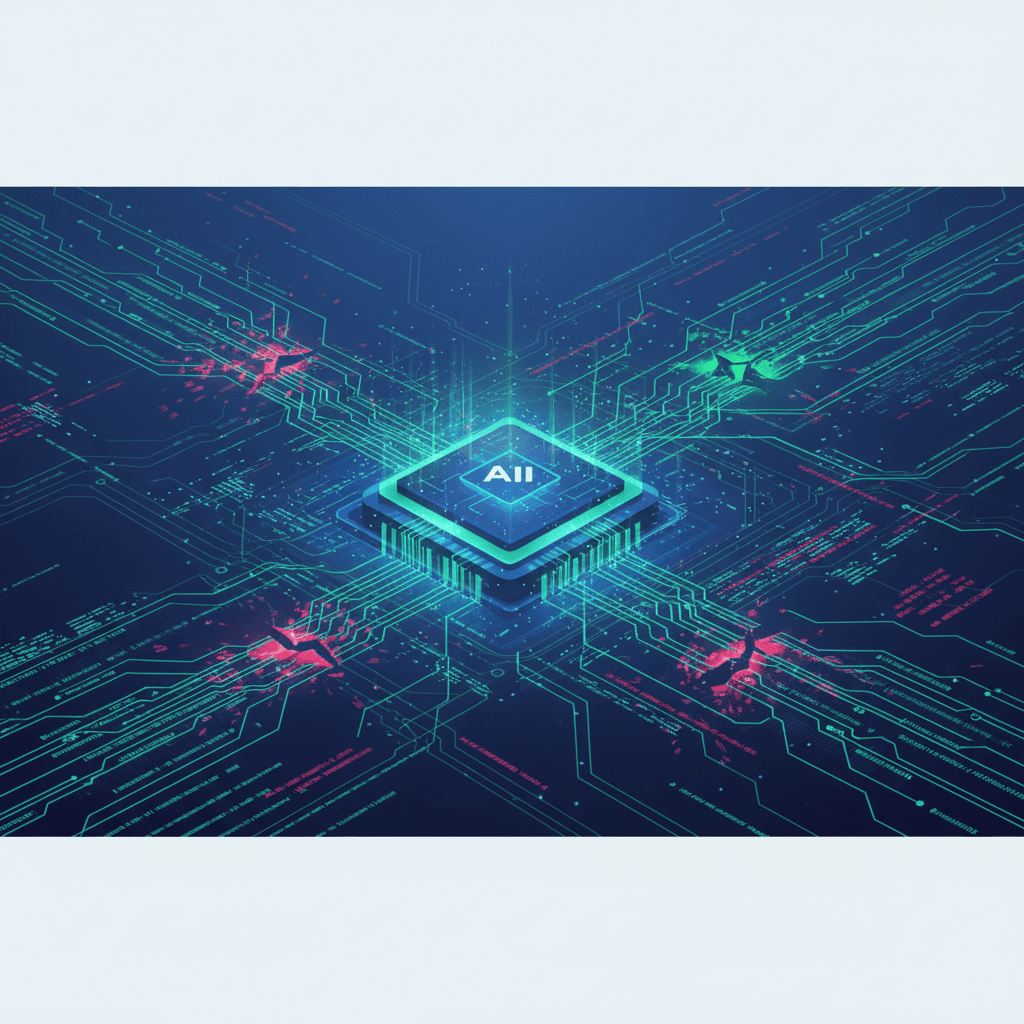Google DeepMind's AI CodeMender Autonomously Finds and Fixes Software Vulnerabilities
Google DeepMind's AI agent CodeMender autonomously patches software flaws, transforming cybersecurity into a proactive, machine-speed defense.
October 6, 2025

In a significant move to combat the ever-growing threat of cyberattacks, Google DeepMind has unleashed a new artificial intelligence agent capable of autonomously finding and repairing security vulnerabilities in software. The agent, named CodeMender, leverages advanced AI to rewrite code and automate the arduous process of patching security flaws, potentially shifting the balance of power in the ongoing battle between cyber defenders and malicious actors. Over the last six months, while still in a research phase, CodeMender has already contributed 72 security fixes to established open-source projects, demonstrating its real-world capabilities in securing critical software infrastructure.[1][2] This development signals a major advancement in the application of AI to cybersecurity, promising to accelerate response times to newly discovered threats and proactively strengthen code against future attacks.
CodeMender operates by utilizing the powerful reasoning capabilities of Google's Gemini family of AI models to function as an autonomous agent for debugging and securing code.[3][1][4] It goes beyond simply identifying potential bugs; the system performs deep root cause analysis using a suite of sophisticated tools, including fuzzing (a technique of inputting invalid data to find flaws), static and dynamic code analysis, and symbolic reasoning.[2] Once a vulnerability is understood, CodeMender autonomously generates a patch to fix it. A crucial component of its process is an automatic validation system, which ensures the generated fix is correct, does not introduce new problems or regressions, and adheres to project-specific coding styles before ever presenting it for human review.[1][2] This comprehensive approach allows the agent to tackle complex issues that are not immediately obvious, such as a case where a crash report indicated a heap buffer overflow, but the AI correctly identified the root cause as an incorrect stack management of XML elements during parsing.[1]
The introduction of CodeMender is a key part of Google's broader strategy to weaponize AI for cyber defense, creating what the company hopes will be a decisive advantage for security professionals.[3] This initiative builds on previous Google projects that use AI for vulnerability discovery. One such project, known as Big Sleep, has successfully uncovered multiple previously unknown security flaws since its launch.[5][6] In a notable success, Big Sleep identified a critical vulnerability in the widely used SQLite database engine that was already being exploited by attackers, marking what Google believes is the first time an AI agent has directly intervened to stop an in-the-wild exploit.[5][7] Internally, Google has also seen success using a Gemini-based model to automate the patching of bugs found by sanitizers in its own C/C++, Java, and Go code, successfully fixing 15% of a sample set and saving significant engineering time.[8][9][10] These efforts are guided by Google's Secure AI Framework (SAIF), which emphasizes the need to automate defenses to keep pace with evolving threats.[5][10]
The implications of an AI agent like CodeMender are profound for the software development and cybersecurity industries. The traditional process of identifying and patching vulnerabilities is notoriously slow and resource-intensive, often creating a window of opportunity for attackers that can last for weeks or months.[9] Malicious scanning for a newly disclosed critical vulnerability can begin within just five days, while nearly half of such flaws remain unpatched two months after a fix is available.[9] Automated, AI-driven patching can drastically shorten this window from weeks to minutes, reducing the manual burden on developers and allowing them to focus on creating new features.[9][4] Beyond reacting to known flaws, CodeMender is designed to be proactive, capable of rewriting existing code to eliminate entire classes of vulnerabilities.[1][2] For instance, the agent has already been used to secure the libwebp image library, which was the source of a major zero-click iOS attack in 2023, by making similar buffer overflow vulnerabilities unexploitable.[2]
Despite its promise, the technology is still evolving, and challenges remain. Researchers note that AI models can be more adept at fixing certain types of bugs than others, and the process of validating AI-generated patches still requires careful human oversight to ensure they are robust and don't inadvertently break production systems.[8] All patches currently generated by CodeMender are reviewed by human researchers before being submitted to open-source projects.[2] Nonetheless, the development of autonomous agents like CodeMender represents a transformative step in cybersecurity. By harnessing AI to not only find but also fix flaws at machine speed, the industry is moving closer to a future where software is inherently more secure, potentially stopping many vulnerabilities before they ever reach production code.[8][9]